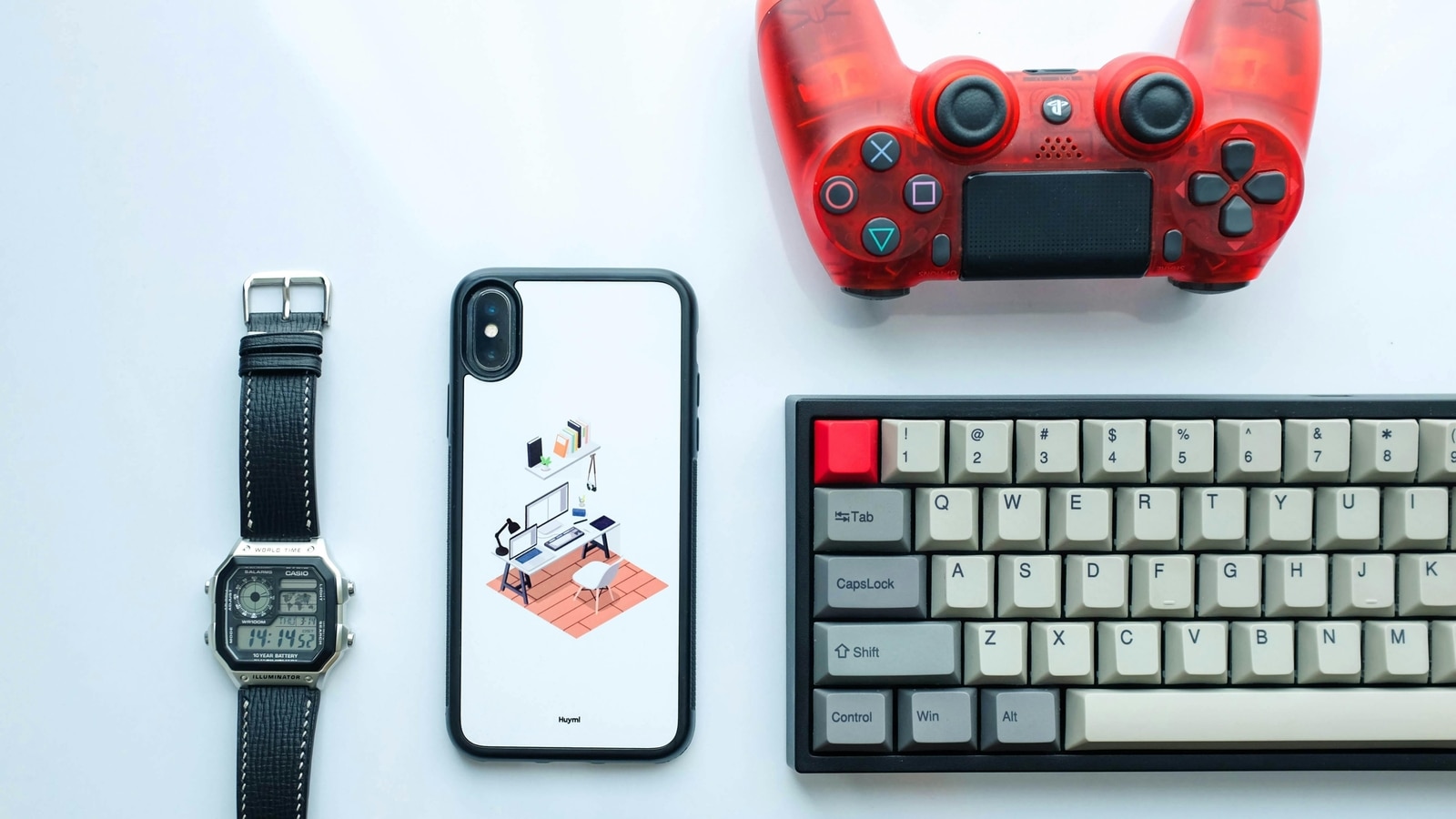There’s a slight chill in the air. The nights are getting longer. The leaves are beginning to change colors. In short, fall is upon us.
Online, this particular change of seasons means only one thing: Christian Girl Autumn has arrived.
Christian Girl Autumn, for the uninitiated, is a meme engineered to lightly roast a certain type of fall-obsessed woman. She’s typically white, clutching a pumpkin spice latte and wearing a chunky knit sweater paired with a big, plaid scarf — the kind of woman who starts putting out autumnal decorations in her house in early August. (She’s not necessarily religious: The meme is more about modest sartorial choices rather than actual worship.)
Christian Girl Autumn also refers to an actual person. Her name is Caitlin Covington, and she’s a lifestyle influencer who accidentally became the face of the meme in 2019 when a Twitter user, Blizzy, used a photo of Covington they found on Google to illustrate the joke that Christian Girl Autumn is the seasonal successor to Hot Girl Summer. (Blizzy told me they found a photo of Covington by simply using the search term “Christian girl outfits.”)
Since then, Covington has leaned into the bit. She takes an annual trip from her home in North Carolina to Vermont to go leaf peeping and, most importantly, to stage photo shoots and take videos she’ll post on social media for weeks to come. (Last year, I spent several days in Vermont with Covington on this trip. She told me that she made at least $20,000 for just two sponsored posts over the course of the trip.)
It’s a fairly innocuous meme, but the cultural rise of Christian Girl Autumn is having some ripple effects.
Pomfret, a small town in Vermont known for its colorful leaves and idyllic scenes, announced this year that it would close several of its most touristed roads to outsiders. Influencers, who have been invading private property in search of the perfect photo op, were the clear target (The local sheriff’s department will be enforcing the restrictions, according to a town memo.)
I will add the caveat here that loving fall in the Northeast — an objectively perfect season associated with apple-cider doughnuts, crisp weather and no humidity — obviously did not become popular just because of a Twitter meme. But thanks to platforms like TikTok, spots like Sleepy Hollow Farm in Pomfret have become overrun by uninvited guests. (The large “no trespassing” sign out front doesn’t seem to be doing the job.)
“The engagement rate on a picture with fall leaves versus, like, some green trees, it’s just insane,” Covington told me last year, noting her Instagram story views had doubled during her time in Vermont. For influencers, and even aspiring ones, that engagement translates to money when brands and sponsors come calling.
Internet Candy
Here’s what else is happening online this week.
Drop it like it’s chatbot
Meta wants you to chat with an A.I. version of Snoop Dogg.
Or Jane Austen, if she’s your thing. Or Tom Brady or Charli D’Amelio, who are also among the 28 celebrities who will be available for A.I.-generated conversation through Meta’s messaging apps. Each celebrity’s likeness takes the form of a different artificially intelligent character. The influencer Mr. Beast, for example, is rendered as Zach, “the big brother who will roast you — because he cares.”
My colleagues Mike Isaac and Cade Metz reported that the company’s rollout of celebrity chatbots is part of the Silicon Valley tussle for A.I. dominance. “People aren’t going to want to interact with one single super intelligent A.I.,” Mark Zuckerberg told them. “People will want to interact with a bunch of different ones.”
The draw for Meta is clear: The chatbots create a flashy way for the company to get its A.I. capabilities in front of the eyeballs of many different users, and boost engagement on its platforms.
What, exactly, is in it for the celebrities? The timing of this announcement felt especially strange given the recent writers’ strike and ongoing actors’ strike, in which both unions raised concerns about artificial intelligence.
It’s one thing for celebrities to lend their likenesses to a product like Ice Spice’s Munchkin Drink from Dunkin’. It’s another thing entirely to allow a company to use them to generate endlessly renewable content.
It is not clear how much these celebrities are being paid for handing their likenesses over to Meta, or what constraints exist on how the company uses them moving forward.
Are these celebrities embracing the bold new future of A.I.? Selling out? Simply trying to make a buck from new technology that may soon be commonplace?
Time may soon tell. Until then, I’ll be trading messages with an A.I. simulacrum of Paris Hilton.
—Callie Holtermann
Have feedback? Send me a note at iho@nytimes.com.
You can also follow me on X (@4evrmalone).






















